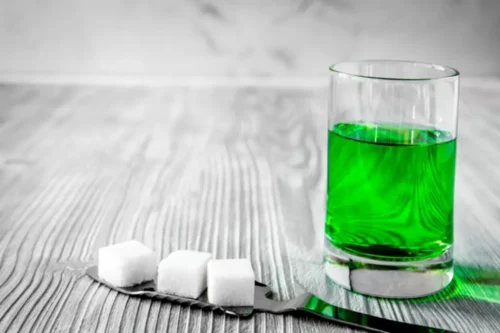How Long Does Brain Fog Last After Quitting Alcohol? Lantana Recovery: Addiction Treatment Rehab Center
Как пользоваться LinkedIn wikiHow
2. novembra, 2020Accounting Concepts and Conventions Definition and Example
14. novembra, 2020
If you drink alcohol regularly, you may experience withdrawal symptoms when you stop drinking or reduce your alcohol intake. Do you ever feel like your brain is foggy after a night of drinking? Alcohol brain fog is a natural phenomenon that affects many people. Recovering alcoholics experience substantial and variedthinking deficits at 2 weeks into recovery. Once the fog clears, you should see your situation in a new light, and this is the moment when you will discover just how good it feels to be sober. While you will have been working through the issues that affect your addiction during the brain fog, you will get a renewed chance to focus even more on getting better.
How we reviewed this article:
Then actually stand up or take a break to briefly unplug when prompted. As for menopause, one study explains that difficulty with memory can begin early on in menopause and end in postmenopause, likely due to the effects that estrogen has on memory performance. One of the challenges with understanding brain fog is that there are so many potential causes, and having brain fog alone doesn’t tell doctors https://ecosoberhouse.com/ what exactly is going on. Alcohol is a risk factor for traumatic brain injuries (TBI) due to falls, car accidents, fights, and other blows to the head. According to a 2010 analysis, 35–81% of people who seek treatment for a TBI are intoxicated. You may find relief by improving your diet and sleep regimen, adding creativity to your daily life, and taking proper (phoneless!) breaks throughout the day.
Article Sources

It can occur during or after someone’s alcohol addiction, even in otherwise healthy people. If someone experiences brain fog in the weeks after their withdrawal, they may have a mental health problem. Heavy alcohol consumption can damage the brain’s communication centers, making it hard for the brain to store memories or track conversations.
- It’s crucial to recognize that the impact of alcohol on the brain doesn’t cease immediately after stopping alcohol consumption.
- This book by Mike Dow, bestselling author and psychotherapist, focuses on how to get your brain in shape so your life shapes up, too.
- A rapidly growing email list that provides the highest quality FREE sober resources and tips to live an addiction-free life, without limits.
- (Walking counts.) “Exercise activates the brain but also tires you out, helping you sleep better at night,” says Pudumjee.
Online Learning Courses

This decrease in brain activity not only affects us while we’re drinking, but it can result in brain fog the next day. It’s also why we might have difficulty concentrating or recalling certain things. It’s important to note that not all individuals who quit drinking will experience all alcohol brain fog of these symptoms or even brain fog. However, those who do may find these symptoms significantly impacting their daily lives. If you or someone you know is experiencing symptoms of alcohol-related brain fog, seeking help and support from a qualified healthcare professional is vital.
The Known Brain-Damaging Effects of Excess Alcohol
- In the context of alcohol, these symptoms can be acute (occurring shortly after drinking) and chronic, lasting long after the alcohol has left your system.
- Jessica Migala is a freelance writer with over 15 years of experience, specializing in health, nutrition, fitness, and beauty.
- Our brains are wired to want a reward – and that wave of euphoria you feel when you take that first bite of your brownie or sip of wine is dopamine surging through you.
Serotonin and other vital neurotransmitters travel from the gut to the brain via the vagus nerve. Chemical signals travel both from the gut to the brain and vice versa. However, the causes of brain fog are common and can often occur in pairs or trios.

- In one study13, women in the first year after their final menstrual cycle, or after menopause, showed higher decreases in attention, verbal learning, and verbal memory than in perimenopause.
- This cognitive haze is a common challenge in the early stages of recovery.
- Carbon 60 is an antioxidant that may help reduce oxidative stress in the body.
- Still, a surprising 2018 French study from shows a strong link between early onset dementia, in which an individual begins shows symptoms of dementia before the age of 65, and alcohol addiction.
- I recommend following an autoimmune diet, or AIP diet, to eliminate toxic and inflammatory foods and replace them with foods rich in essential nutrients, including vitamin B12.
While the Centers for Disease Control and Prevention (CDC) recommends that you exercise for 30 minutes per day, any kind of movement counts. Contributors to this article for the NIAAA Core Resource on Alcohol include the writers for the full article, content contributors to subsections, reviewers, and editorial staff. These contributors included both experts external to NIAAA as well as NIAAA staff.
If you’re wondering how to get rid of alcohol-induced “brain fog,” it may be time to seek professional treatment. Professional treatment can help you stop drinking and regain control of your life. This craving for instant gratification, known as intermittent reinforcement, is what drives popcorn brain. Basically, your brain gets a little reward at random times, like when you check comments on your TikTok video or see how many likes your selfie got. In fact, a 2023 study found that just having your phone nearby can lower your attention and cognitive performance.
- Alcohol use disorder (or alcoholism) is also a clear issue for the brain.
- It sounds simple, but a healthy exercise regime is not only essential for overall health but has significant benefits on cognitive function.
- Brain fog, on the other hand, “typically involves a general sense of mental fatigue and difficulty in clarity or concentration,” explains Ozan Toy, MD, MPH, a New Jersey-based psychiatrist.
- You may also want to consider taking a nap during the day if you are feeling particularly tired.
Healthy Withdrawal
Suppose you are struggling to manage your stress levels and alcohol consumption. The symptoms of brain fog from alcohol can vary depending on the individual. Liver damage can lead to a build-up of toxins in the blood, which can cause a range of symptoms, including brain fog. COVID-19 is known to cause lingering problems with attention, concentration, and memory after infection, one symptom of long COVID, according to the National Institutes of Health (NIH).
No matter how much you drink, adding whole nutrient-dense foods to your diet is going to help your body and brain work better. Before we dive into alcohol’s impact, it’s important to remember that the amount you drink completely changes its overall effect on your brain health. But, there is some evidence showing that light and moderate drinking may have its upsides too. Abstinence can often reverse the harm that drinking may do to the brain.

